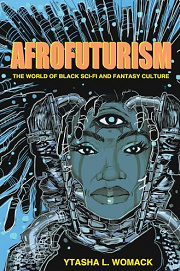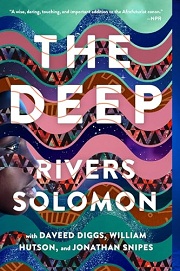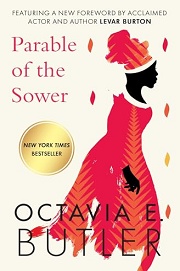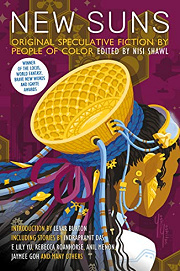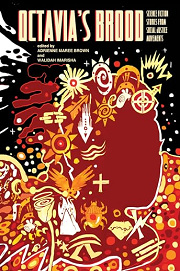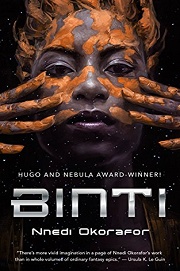Share your thoughts in a quick Shelf Talk!
Afrofuturism: The World of Black Sci-Fi and Fantasy Culture by Ytasha L. Womack
Charting a vibrant constellation of music, film, art, and literature, Afrofuturism: The World of Black Sci-Fi and Fantasy Culture illuminates how Black creators reimagine futures—and rewrite the past—with style, verve, and visionary courage.
Have you read this book? Share what you liked (or didn’t), and we’ll use your answers to recommend your next favorite read!
Love Afrofuturism: The World of Black Sci-Fi and Fantasy Culture but not sure what to read next?
These picks are popular with readers who enjoyed this book. Complete a quick Shelf Talk to get recommendations made just for you! Warning: possible spoilers for Afrofuturism: The World of Black Sci-Fi and Fantasy Culture below.
In Afrofuturism: The World of Black Sci-Fi and Fantasy Culture, did you enjoy ...
... the culture-first, socially rooted approach to imagining Black futures?
The Deep by Rivers Solomon
If the chapters where Womack connects Sun Ra’s cosmic mythmaking and Janelle Monáe’s Cindi Mayweather to lived history thrilled you, you’ll love how The Deep grounds speculative wonder in cultural memory. Drawing from clipping.’s song about the descendants of enslaved Africans who live under the sea, Solomon explores how a community remembers, forgets, and heals—much like the way Womack traces Afrofuturism’s remix of history into future-making.
... deep, idea-driven conversations about belief, change, and community building?
The Parable of the Sower by Octavia E. Butler
Womack highlights Butler’s ethos—change as God, vision as survival—when she discusses Afrofuturism’s philosophies. In Parable of the Sower, Lauren Olamina forges Earthseed in a collapsing America, turning a personal creed into a communal future. If you were drawn to Womack’s discussion of Butler’s probing questions and ethical frameworks, this novel gives you that philosophy in action.
... a vibrant spectrum of Black and global voices across speculative modes?
New Suns: Original Speculative Fiction by People of Color by Nisi Shawl
Womack celebrates a tapestry of creators—from Parliament-Funkadelic’s Mothership to films like Pumzi and the global currents shaping Afrofuturism. New Suns, edited by Nisi Shawl, gathers a wide array of writers (including up-and-coming and award-winning voices) to showcase many angles of identity, culture, and futurity. If you loved Womack’s panoramic spotlight on many creators, this anthology delivers that same breadth in story form.
... rigorous links between art, history, and activism in future-making?
Octavia's Brood: Science Fiction Stories from Social Justice Movements by Walidah Imarisha and adrienne maree brown
Womack ties aesthetics to praxis—think of how she moves from Sun Ra and Delany to contemporary activism and community tech. Octavia’s Brood takes that bridge seriously: stories crafted by organizers and thinkers ask how movements dream new worlds. If the way Womack connected cultural production to real-world change energized you, these tales transform that intellectual spark into narrative experiments.
... forward-looking, liberatory optimism threaded through Afrofuturist art?
Binti by Nnedi Okorafor
When Womack revels in Wakanda’s aspirational technology and Monáe’s emancipatory android narratives, she’s pointing to futures that heal. In Binti, a Himba mathematician leaves home for an interstellar university and brokers peace between humans and the Meduse through empathy and ingenuity. If you cherished the hopeful throughline in Womack’s tour—from music to film to lit—Binti’s journey embodies that bright, bridge-building optimism.
Unlock your personalized book recommendations! Just take a quick Shelf Talk for Afrofuturism: The World of Black Sci-Fi and Fantasy Culture by Ytasha L. Womack. It’s only a few questions and takes less than a minute.
